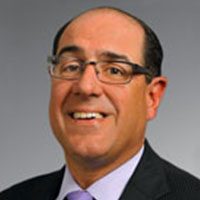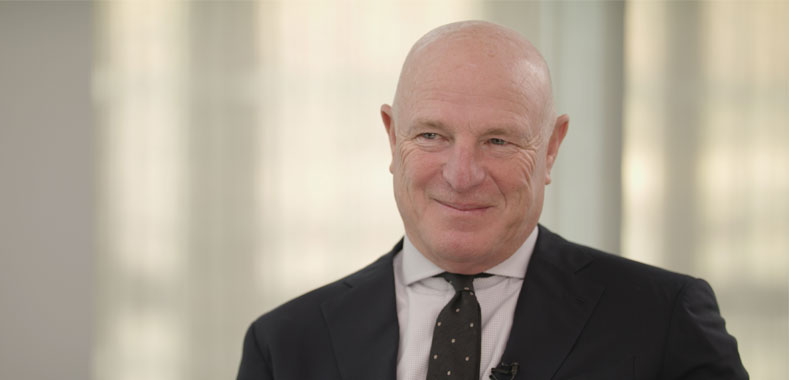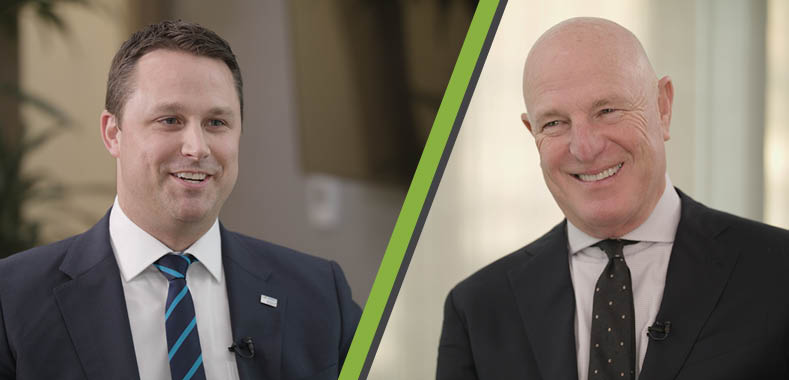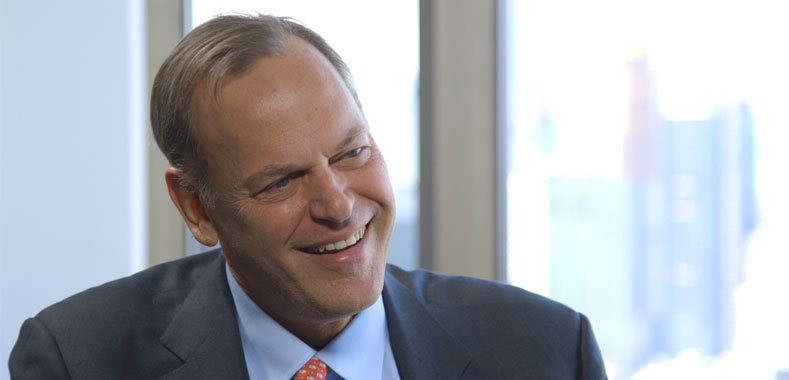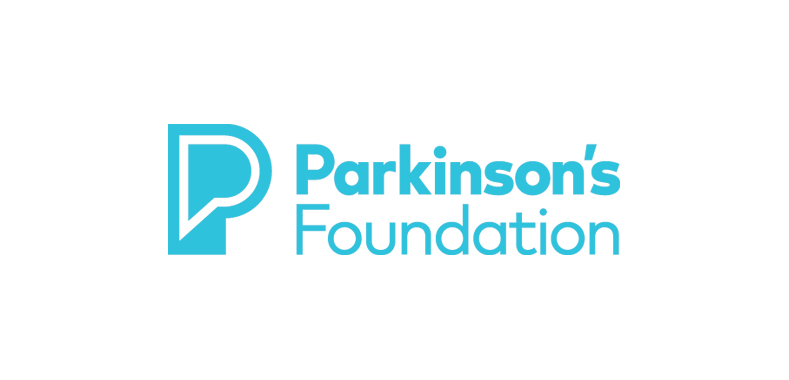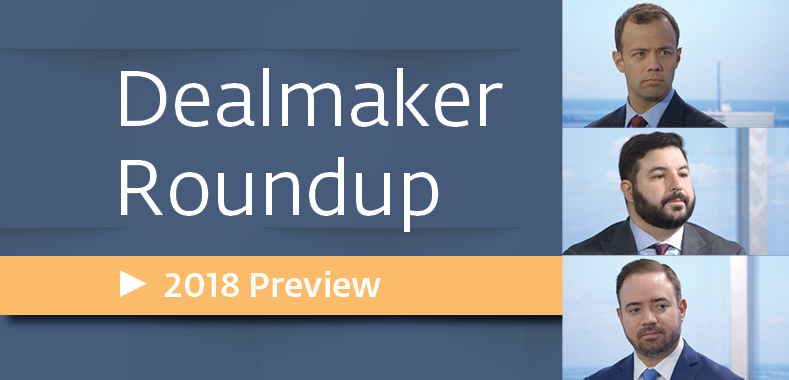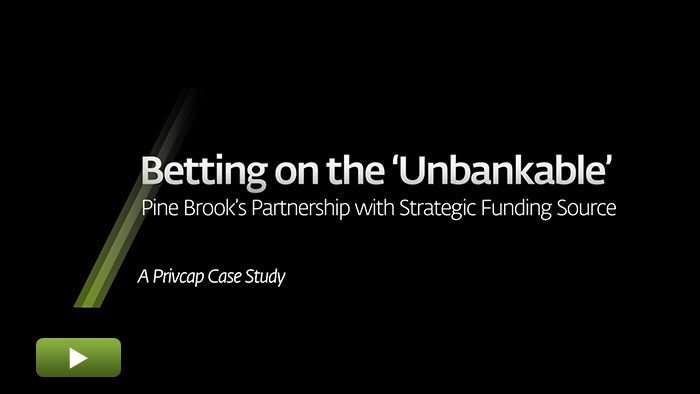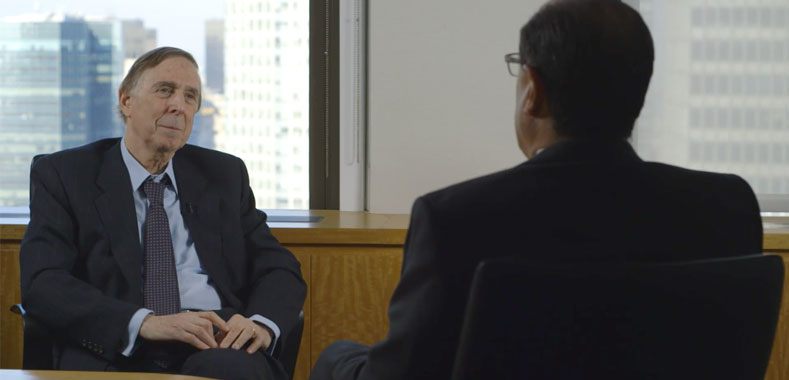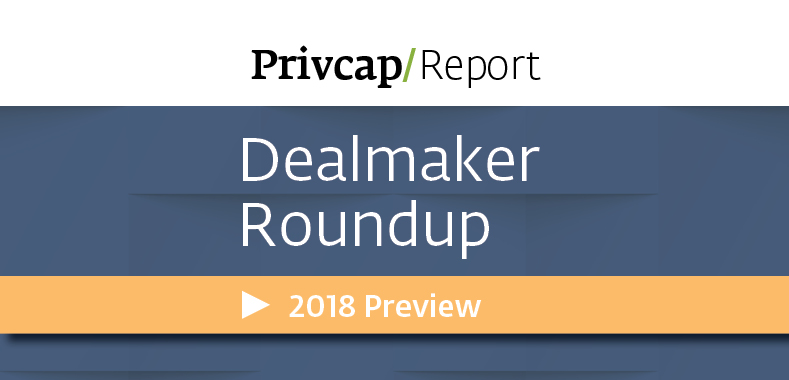Powerhouses in PE: Howard Newman’s ‘Serendipitous’ Success
Private equity veteran Howard Newman shares the story of his rise from small town in Pennsylvania to the founder of a major private equity firm. He covers his long career at Warburg Pincus, decision to leave and start Pine Brook, as well as explains a signature offering of his firm, the “line of equity” approach to investing.
Transcript Download Transcript
Powerhouses in PE: Howard Newman’s Serendipitous Success
Don Lipari, RSM: Hello, this is Don Lipari, National Private Equity for RSM, with another segment of “Powerhouses in Private Equity.” Today we’re with Howard Newman, CEO and chairman of Pine Brook Partners. Hello, Howard.
Howard Newman, Pine Brook:
Hi, Don.
Lipari: Howard, as I was preparing for this conversation, I was looking at your background. [You have] degrees from Yale University, a PhD from Harvard, [you were] a Marshall Scholar at Cambridge, Morgan Stanley, Warburg Pincus, and a co-founder of Pine Brook Partners. I candidly didn’t know where to start. It seems like you have a master plan, a road map, that laid out this entire progression of yours. Was that the case?
Newman: No. It wasn’t the case at all. It looks like a straight line, but it’s a lot of serendipity involved. I wound up at Morgan Stanley by accident. I wound up at Warburg Pincus because I’d been looking for a small firm to go from the sell side to the buy side, so it just happened.
Lipari: It was an accidental success?
Newman: Accidental. I went to Yale to be a mathematician or a history professor, I wound up being a private equity guy. It doesn’t make any sense.
Lipari: What was home for you, Howard? Where did you grow up?
Newman: I grew up in York, Pennsylvania, a town that, if you grew up in York, Pennsylvania, you would know was the first capital of the United States of America. But no one else would know that.
Lipari: So, it’s a good well-kept secret.
Newman: Well-kept secret. I went to a public high school, William Penn Senior High School of York, Pennsylvania. It was not an academic high school. There were 600 people in my graduating class and I think 30 of us went to four–year colleges.
Lipari: Your degrees from Yale and Harvard were both in economics.
Newman: Correct. When I went to Cambridge, my thesis was about integrating the philosophical assumptions of economic thought into understanding how different schools of economics developed in that sense. It was only when I came back to Harvard that I became much more mainstream in my approach to economics and worked on developing the relationship between business policy and industrial organization, which led to the way I think about businesses.
Lipari: Let’s jump into the Warburg Pincus years. You joined them, I believe, in 1984.
Newman: 1984.
Lipari: It’s the infancy of private equity. Talk about what that was like, your evolution into becoming a private equity professional.
Newman: In 1984 was a funny time. Warburg had just raised a $340-million fund sometime in 1983, and they didn’t really know what to do with that much money. It was the largest fund, which had been raised by order of magnitude because it was the beginning of institutional capital flowing into the private equity business.
John Vogelstein thought my life at Morgan Stanley meant that I understood how to do large transactions. I think that ultimately was what caused him to decide to hire me. At the end of my first year, he called me into his office and said, “So, I don’t think this is the right business for you.”
Lipari: Oh, boy.
Newman: It was not a good year, but he decided to give me another year. It worked out in the second year. The first real transaction I worked on at Warburg was a direct mail company called Advo. It was going to be a $10-million deal.
Warburg decided this was too big a deal for me. So we brought Welsh, Carson in. Welsh, Carson dropped, and we had to go back and beg them to come in for 20%, which they did. Ultimately, we made 15 times our money on the transaction, so we were happy.
Lipari: There was $2 million you were begging them for?
Newman: Begging for $2 million. I laugh about that today. You can spend $2 million on the bust–a–deal fees without even batting an eye if you’re a large private equity firm today.
I was told that we would never invest in a financial services company. Yet the second deal I did at Warburg was we did a deal where we capitalized the Bowery Savings Bank with Buffet and Dillon, Read and Salomon Brothers—a couple people like that. I think we made two times our money in three years and, all of a sudden, it was a different world. It was easy for me to bring those things to Warburg because I had done energy and financial services when I was at Morgan Stanley.
For me to bring those things to Warburg was easy and the tribute to John and Lionel was that they were prepared to allow me to fail. They said, “Give it a try. If it works, fine, if it doesn’t work, nothing ventured, nothing gained.” It took that to where I tried to get them back into the energy business.
Lipari: 22 years with Warburg and, in 2006, you decide to co-found Pine Brook Partners. What led to that decision?
Newman: Warburg went through generation change in the year 2000. So, I stayed for five years. By that time, we had developed half a dozen verticals at Warburg and my next job at Warburg was to retire. I didn’t really have an interest in that job.
My successors were doing a great job. [There was] nothing for me to do, so I left. What I realized at that point in time was that I wanted to continue to build things. At Warburg, I built a bunch of our best businesses. I helped change the firm from generalists to a bunch of industry verticals and things like that. So I said, “What should I build next?” I thought building a private equity firm just showed up on the radar screen.
With three other guys, we started Pine Brook and the theory was we would create an organization that had a lot of white space; we’d bring in some good career professionals and give them the opportunity to build businesses for us.
I would say that we got financial services right on day one with William. William has built a spectacular business for us, I think, much to the surprise of most people. The financial services when we started the firm in 2006 had just gone through a period when a lot of really smart people had done really badly in the business.
We’re into the transition; William and Rich are now the co-presidents. We’ve agreed that they’ll become chief executive officers about a year from now and I will move onto really doing an investing role and allow them to take this platform we’ve created and build it out.
Lipari: It sounds like you started Pine Brook to transition to others, to build a pipeline of talent.
Newman: I was 58 at the time when I started the business. What I really wanted was to have an organization which could grow well beyond me when I was done. It’s what I do with my portfolio companies, right? We have created 47 businesses at Warburg and here we’ve done 55, so we have 100 businesses, some of which are still large and profitable businesses out there and they’re in their second and third generation in management teams. Why shouldn’t Pine Brook be that way?
Lipari: Why do business owners engage and partner with Pine Brook?
Newman: One of the reasons people come to Pine Brook is because the people we have worked with tell them to come to Pine Brook, that our business development effort has three elements to it. One is our CEO references, which are very strong. Second, your business development effort is based upon your track record of success, so that management teams can look at you and decide either you are good partners or you’re sufficiently lucky that they want to work with you.
We don’t take fees from our management teams and we don’t put ourselves in front of them. That culture, I think, is important to our business development effort.
Lipari: Talk about the line of equity model that you employ here at Pine Brook.
Newman: We said, “You might need all this money for this business plan to work, but we don’t know if it’s really going to work, so why don’t we give you a little bit but agree that as you build out your business, we’ll give you more? Therefore, you, as the management team, can spend all of your life thinking about the business and none of your life worrying about raising money.”
As opposed to Silicon Valley, you spend all of your life on the road raising more and more Series A, Series B, Series C at progressively higher valuations. So, your principal job is raising money, and I wanted our guys to have their personal job as building a business.
When we started Pine Brook, the question was, could you apply the line of equity in financial services? We thought we could and we did very successfully.
These are businesses that continually consume capital. The more successful you are in an energy company, the more money you’re going to need. The more successful you are in the financial services company, the more money you’re going to need.
Lipari: As you look back of what you’ve accomplished thus far, I know you describe your [path] as not a road map and serendipity, but have you achieved your dreams?
Newman: I touched all those organizations in different ways, and part of me is in all of them and part of them is in all of me. I can look back at each of those and say, “Yeah, I created this. Warburg, I created these businesses, energy and financial services. Pine Brook, I created Pine Brook.” I can look back and say there’s something tangible that just happened. What I’ve said to my younger partners is, if you want to do this, I will help you do this. But I am not going to do this. You know, we can get you to the Promised Land, but it’s your job to cross into it. It’s not my job anymore, it’s your job.

